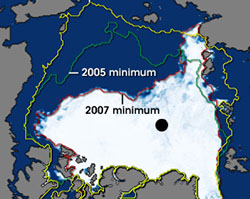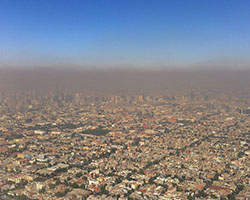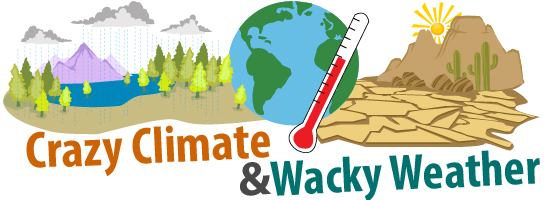Climate "Facts"?
People like to share information about climate change. You have probably heard it on TV, read about it on internet blogs and websites, or maybe even learned about it in school. But where does all this information come from and how do we know what’s true and what’s false?

The true, factual information about climate change comes from scientists doing primary research. When a scientist does primary research they collect data to test specific hypotheses. After the research is finished, scientists write a report and turn it in for publication. This lets others learn about what they did and how they did it.
The best type of information will be published in a good peer-reviewed journal. This means that it has been checked by other scientists for mistakes and the experiments and results have been reviewed to be sure they did not miss any errors.
Test It Again, To Be Sure
When something is published in a scientific journal, however, it doesn't mean everyone agrees or that there are no errors. In fact, scientists will test hypotheses over and over again using different methods and data to see if they get the same result. Each time they test the hypothesis they will publish their findings. Over time these different studies add up and either support or reject a hypothesis.

There are a lot of scientists doing primary research on climate change because climate is so important to how we live. A great deal of this research supports the hypothesis that today’s climate is changing because of human actions. Still, there are other opinions. But be careful in finding valid information.
Opinions are not facts. Opinions may not be based on primary research or could be biased. Bias means that someone’s opinion is based only on a few studies or on information they pick, instead of all the primary research taken together as a whole.
Finding out if you can trust a claim about climate change is hard. In deciding what to believe, asking questions about the source of information can be helpful. Did it come from a trustworthy source? If it didn't, see if you can find any primary research about the claim. The Intergovernmental Panel on Climate Change (IPCC) has already pulled together a lot of primary research and might be a good place to see which hypotheses have the most support.
Visit our links page to find more resources on climate change.
Read more about: Crazy Climate and Wacky Weather
Bibliographic details:
- Article: Fishy Climate Facts
- Author(s): Dr. Biology
- Publisher: Arizona State University School of Life Sciences Ask A Biologist
- Site name: ASU - Ask A Biologist
- Date published: 2 Feb, 2016
- Date accessed:
- Link: https://askabiologist.asu.edu/climate-fishy-facts
APA Style
Dr. Biology. (Tue, 02/02/2016 - 16:36). Fishy Climate Facts. ASU - Ask A Biologist. Retrieved from https://askabiologist.asu.edu/climate-fishy-facts
Chicago Manual of Style
Dr. Biology. "Fishy Climate Facts". ASU - Ask A Biologist. 02 Feb 2016. https://askabiologist.asu.edu/climate-fishy-facts
Dr. Biology. "Fishy Climate Facts". ASU - Ask A Biologist. 02 Feb 2016. ASU - Ask A Biologist, Web. https://askabiologist.asu.edu/climate-fishy-facts
MLA 2017 Style

Satellite images are one type of data researchers use to learn how climate is changing over time.
Be Part of
Ask A Biologist
By volunteering, or simply sending us feedback on the site. Scientists, teachers, writers, illustrators, and translators are all important to the program. If you are interested in helping with the website we have a Volunteers page to get the process started.

